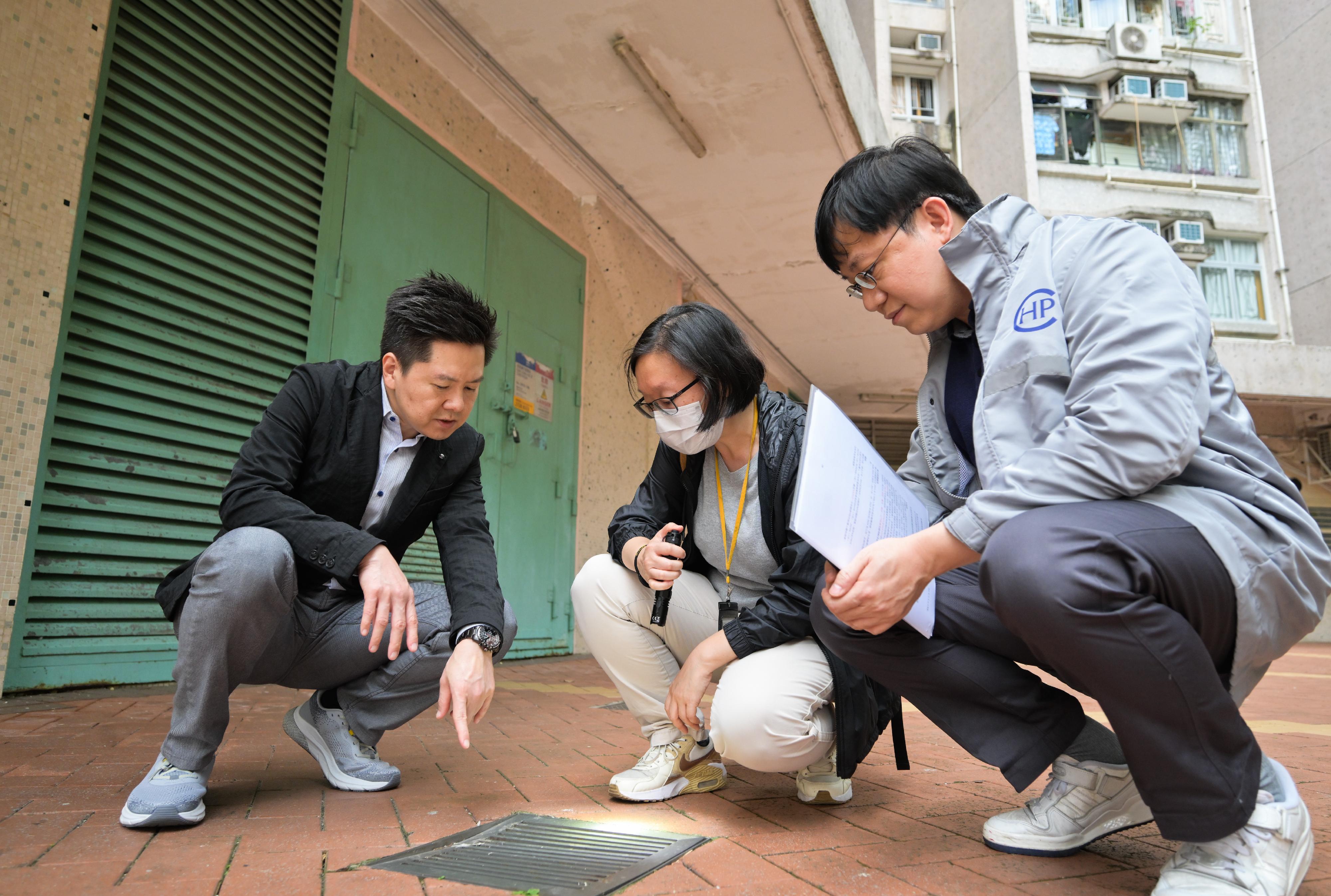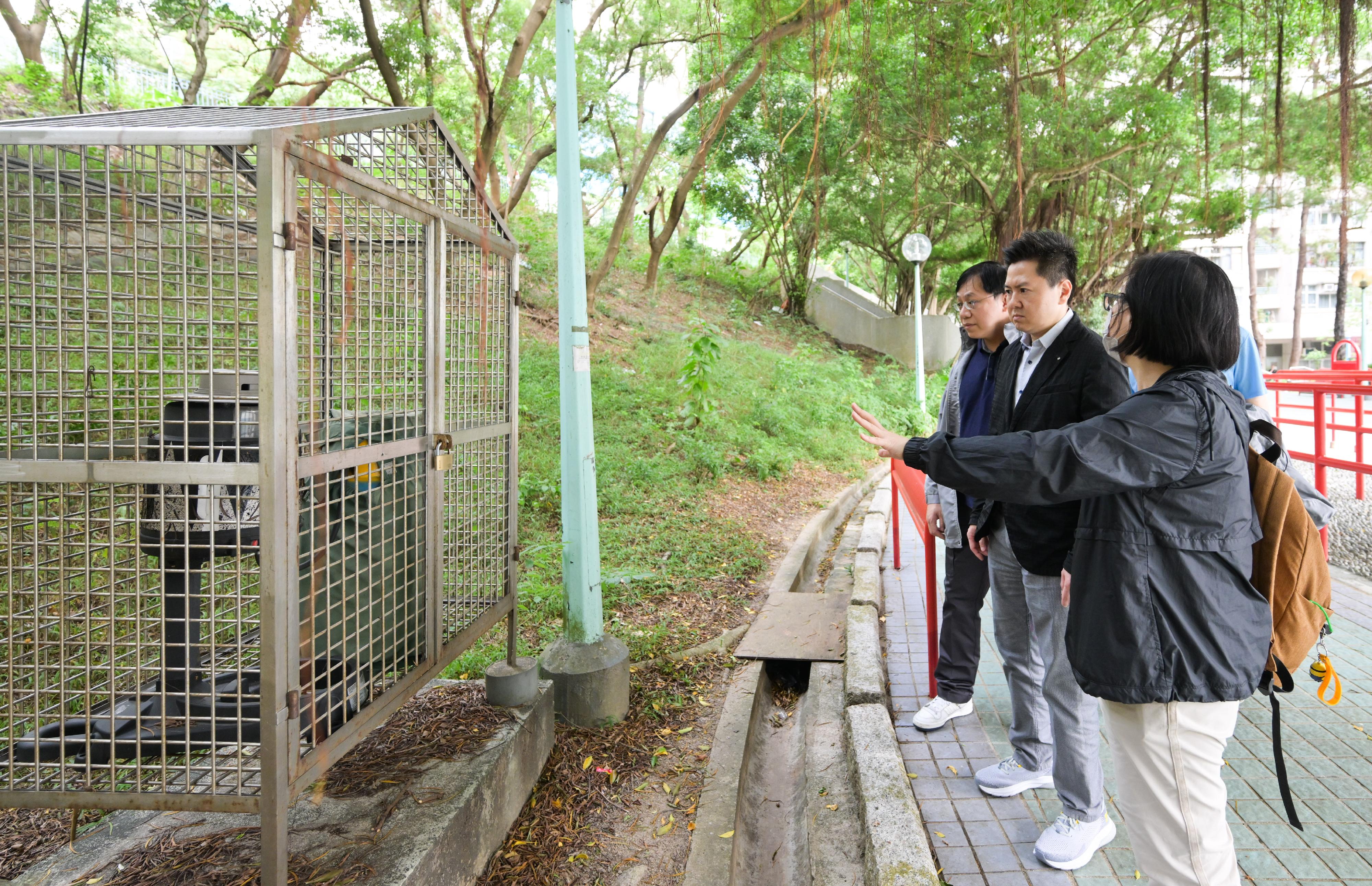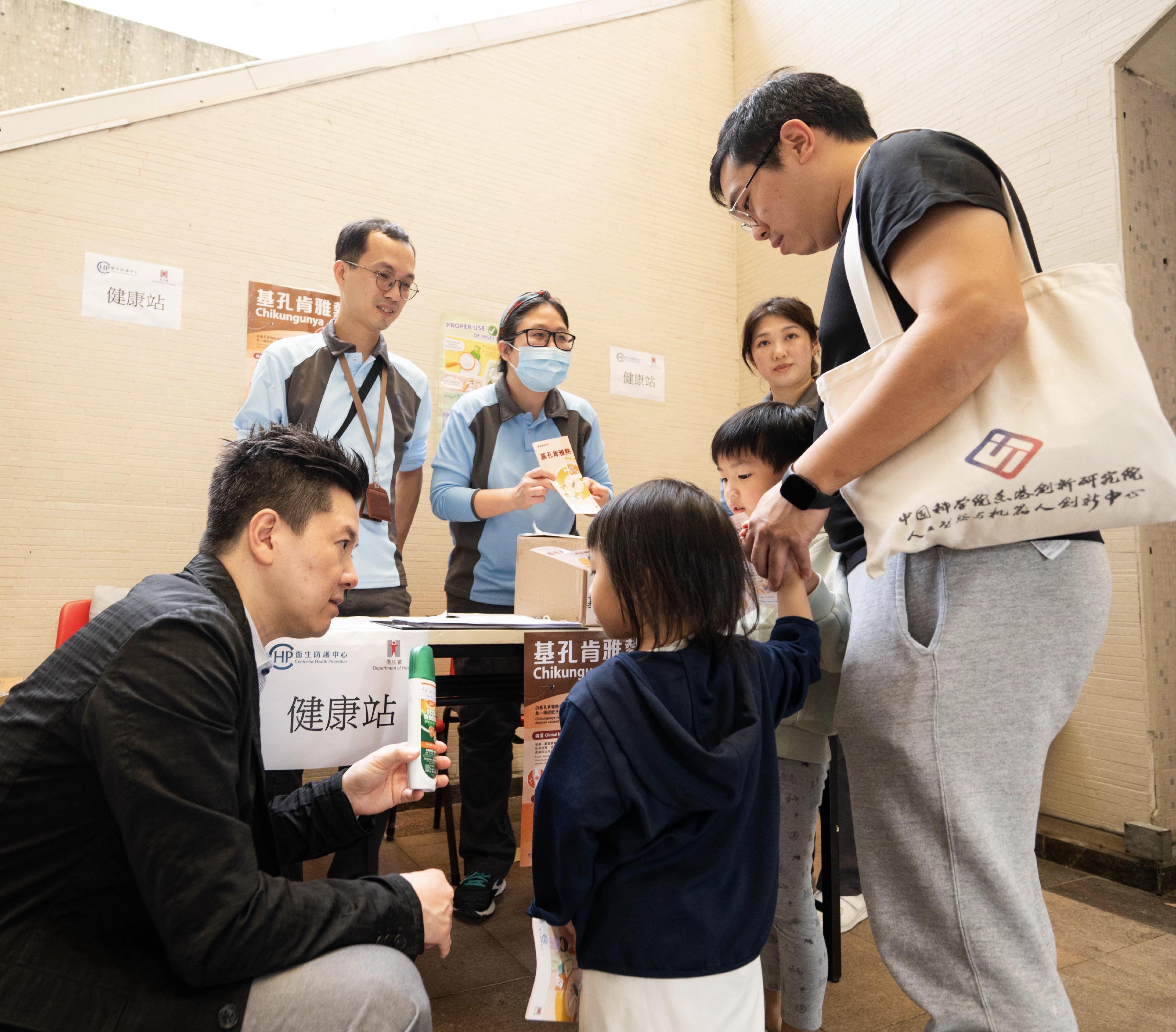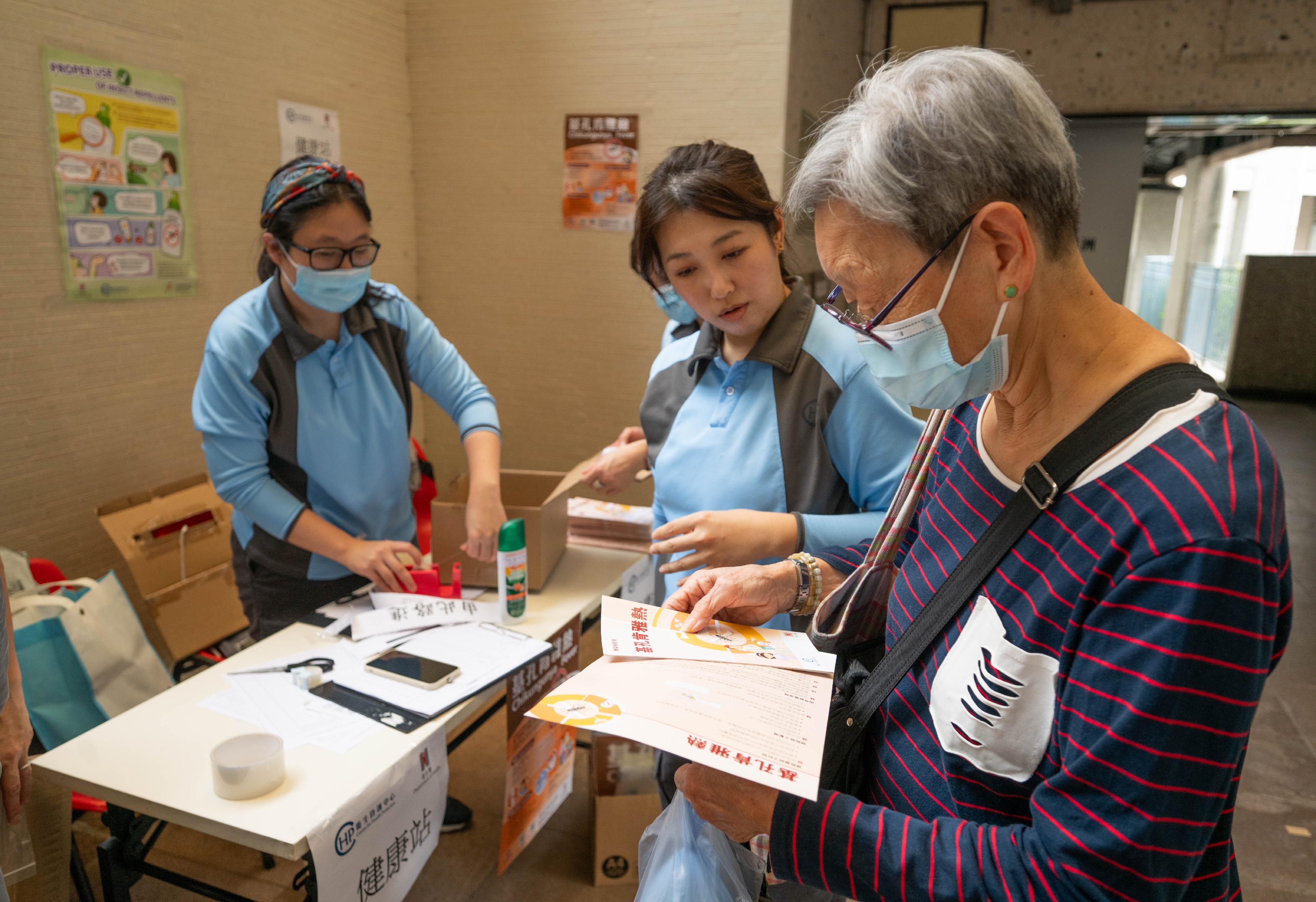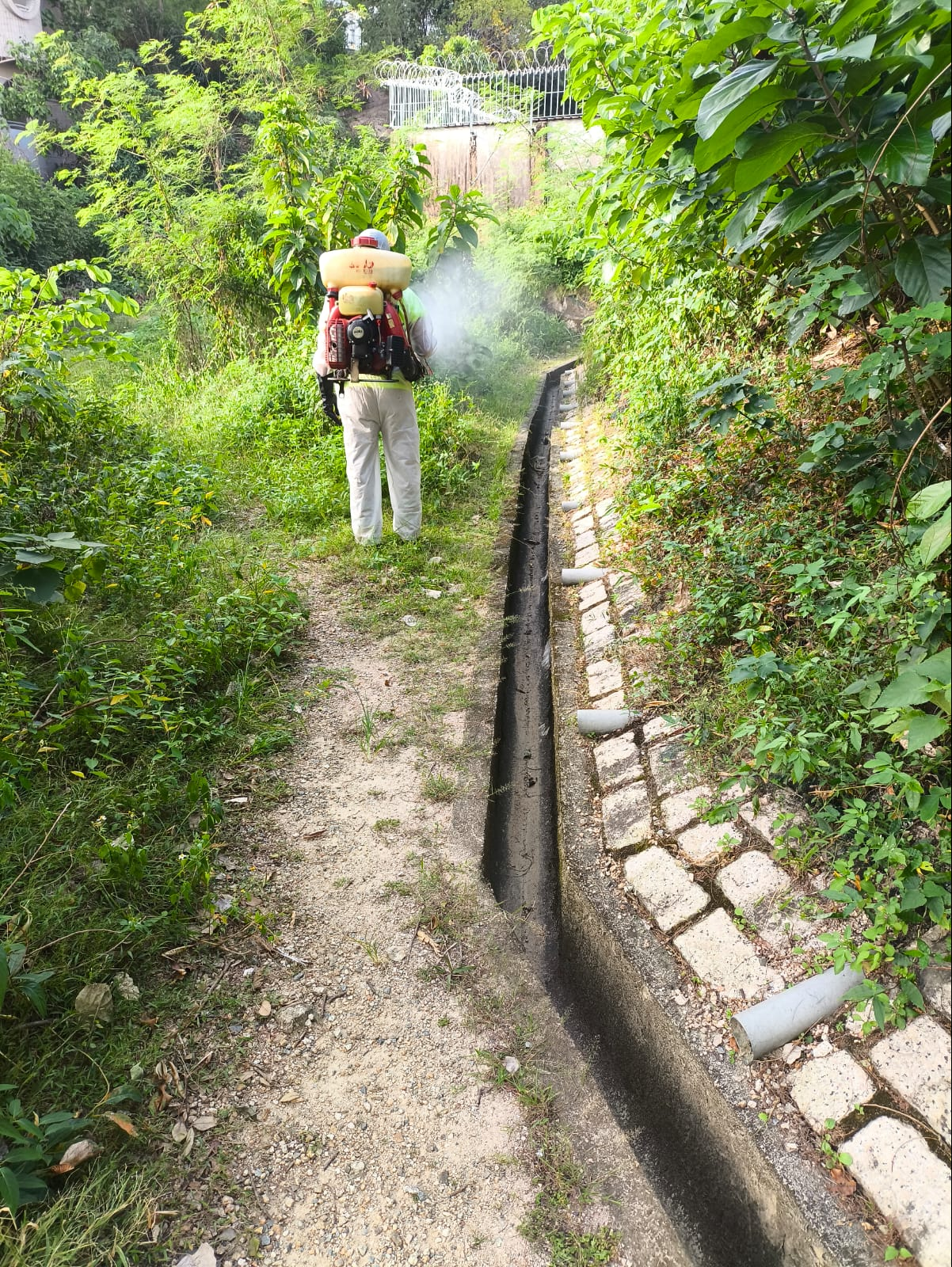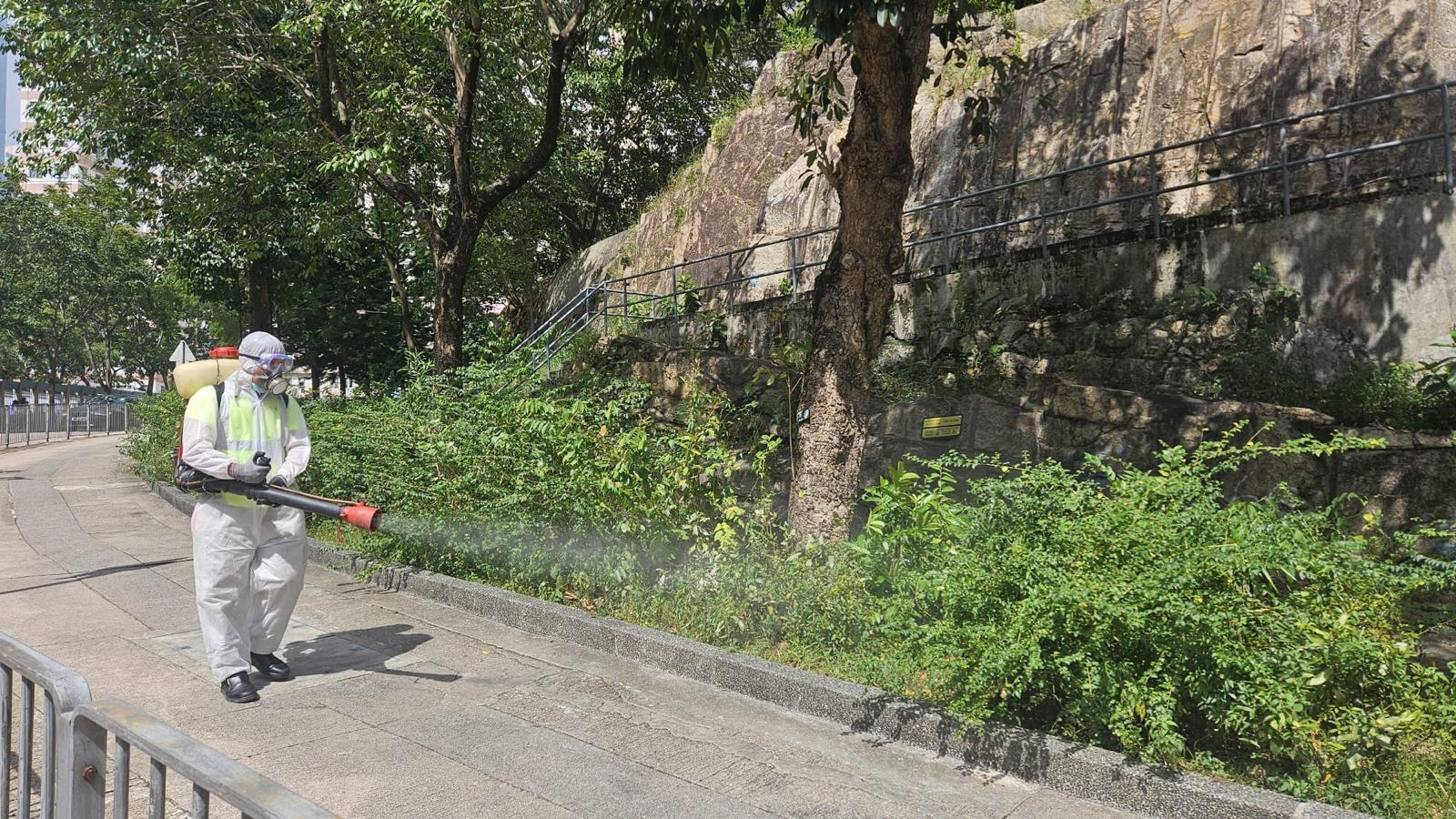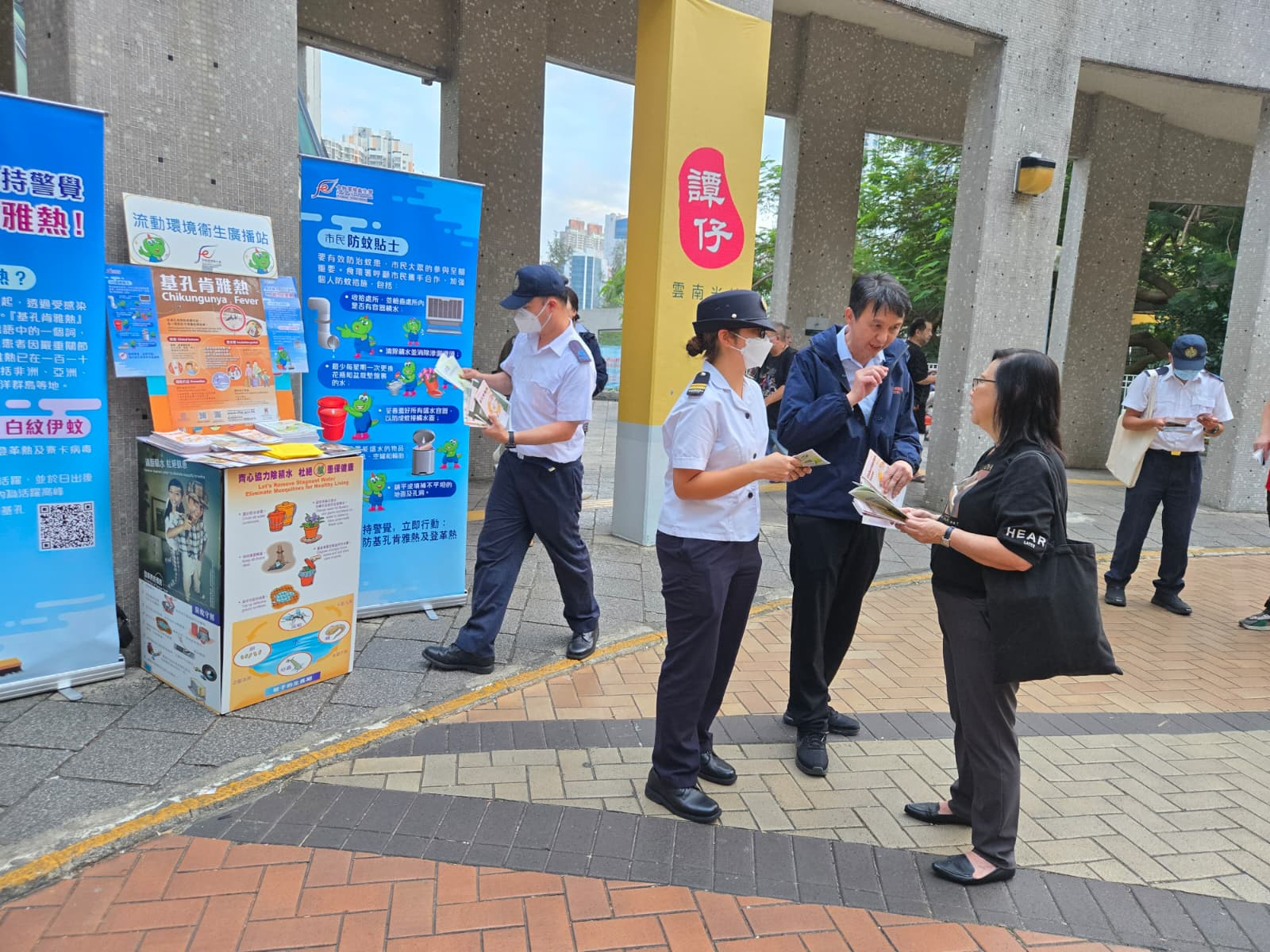CHP investigates first local chikungunya fever case in Hong Kong (with photos)
******************************************************************************
Latest case information
----------------------------
The case involves an 82-year-old female living in Fung Tak Estate in Wong Tai Sin. She developed swollen and painful left ankle since October 18, and fever and limbs joint pain on October 22. She sought medical attention from a private doctor on the same day, and attended the Accident and Emergency Department of Kwong Wah Hospital the following day (October 23). She was admitted for treatment in a mosquito-free environment. The patient is now in stable condition. Her blood sample tested positive for the chikungunya virus upon laboratory testing. A preliminary investigation revealed that she visited Qingyuan in Guangdong in late August but had no travel history during the incubation period (two to 12 days prior to onset). The case is classified as a local case. The patient has four household contacts who are currently asymptomatic and under medical surveillance.
Government's comprehensive follow-up actions
----------------------------------------------------------
In response to the abovementioned local case, the CHP today has conducted inter-departmental meeting with various departments and relevant organisations, including the Food and Environmental Hygiene Department (FEHD), Wong Tai Sin District Office (WTSDO) and Hong Kong Housing Authority, to ensure that all units implement various preventive and control measures in a speedy and orderly manner.
As at 5pm yesterday, Hong Kong has recorded a total of 46 confirmed CF cases. All are imported cases. None of the 46 patients lives near the abovementioned local case. Given that the activity areas of the 82-year-old patient are primarily within the estate, the CHP cannot rule out the possibility that unidentified infected patient(s) in the area may have transmitted the virus to mosquitoes in the estate, leading to her infection.
The CHP is implementing prevention and control measures according to epidemiological investigations and risk assessment, including providing medical surveillance and health advice to household contacts of the case or those with common exposure to the source of infection. The CHP will arrange for laboratory testing if they presented with relevant symptoms. The CHP officers and District Services & Community Care Teams (Care Teams) will contact about 8 000 households and carry out questionnaire surveys to understand and follow up their health conditions. The CHP urged the residents to seek medical advice or contact the CHP immediately if they presented with a fever, rash or joint pain since October 1.
The CHP will hold an online live seminar at 8.30pm tonight. Doctors will explain the symptoms of CF, how to prevent infection and how to properly use insect repellents. The CHP and WTSDO will organise a public health talk at the at Fung Tak Estate Community Centre at 8pm tomorrow (October 27) to enhance public understanding of this mosquito-borne disease and encourage active participation in prevention efforts to protect both oneself and others.
In addition, the CHP has set up a health consultation booth at 2/F, Fung Tak Shopping Centre, where assessments will be provided to residents with relevant symptoms from today. The CHP will also setup an inquiry hotline (2125 2373), which will operate from 9am to 8pm.
The CHP, together with the FEHD, have inspected various locations in the vicinity of patient's residence, conducted vector investigations and mosquito control operations to minimise the risk of local transmission. Furthermore, the CHP will issue letters to doctors, hospitals, schools and institutions, providing the latest information on CF and remaining them to be vigilant.
The FEHD and relevant departments have comprehensively enhanced the mosquito control operations in Hong Kong since July this year. In fact, overall mosquito infestation indices this year are lower than that of the previous years. The mosquito infestation index in September was 2.5 per cent, which decreased significantly from 9.5 per cent in June. The index available for October also remains at a low level. Regarding the investigation area of the local case, the latest area gravidtrap index (AGI) in October was 1.7 per cent, while the AGI in September was 0.9 per cent, indicating the distribution of Aedes albopictus mosquitoes was not extensive. Among which, the FEHD has conducted vector investigations and targeted mosquito control operations against the imported cases. In light of the local case, the FEHD has immediately conducted follow-up actions, these measures include:
- carrying out intensive fogging in scrubby areas within a 250-metre radius of the relevant locations to kill adult mosquitoes;
- carrying out inspections of the locations, removing stagnant water, applying insecticides and disposing of abandoned water containers every week with a view to preventing mosquito breeding; and
- enhancing public education efforts through organising health talks, setting up mobile education stations, and distributing publicity leaflets.
The abovementioned measures will be continued. Furthermore, the Government will further enhance the mosquito control efforts in addition to the existing measures. The Environment and Ecology Bureau will hold Steering Committee meeting to lead relevant departments to step up mosquito prevention and elimination measures; the district offices of the FEHD will hold interdepartmental meetings at district level to undergo risk assessment and conduct targeted measures.
The WTSDO is working closely with the CHP to disseminate information on CF, including arranging Care Teams to distribute leaflets and surveys to each household unit, contact Link to facilitate the setup of a health consultation booth at the shopping centre nearby, and arranging health talk for the residents to be held tomorrow night.
Latest surveillance data
-----------------------------
Since the beginning of 2025, and as of September 30, a total of 445 271 suspected and confirmed CF cases and 155 CF-related deaths have been reported in 40 countries/territories. Cases have been reported in the Americas, Africa, Asia, and Europe. CF outbreaks currently occur in many countries worldwide. Members of the public should check the situation of the destinations before travelling abroad.
Preventive measures taken by the public
-------------------------------------------------
Severe symptoms and deaths caused by CF are extremely rare, with a mortality rate of less than one in 1 000. The occurrence of severe complications is mostly related to the patients' underlying health conditions. Elderly persons (particularly those aged 65 or above), young children (particularly infants under 1 year old), pregnant women and persons with chronic illnesses (such as hypertension, diabetes or heart disease) are at higher risk of developing complications after contracting CF and may require a longer recovery period. Therefore, members of the public (especially the abovementioned high-risk groups) are advised to seek medical advice promptly if they develop relevant symptoms, particularly a fever, sudden severe joint pain and skin rash, after visiting areas affected by CF.
Members of the public should use DEET-containing insect repellents or other effective active ingredients properly to prevent mosquito bites, but the following precautions should be taken when using them:
- read the label instructions carefully first;
- apply right before entering an area with a risk of mosquito bites;
- apply on exposed skin and clothing;
- use DEET of up to 30 per cent for pregnant women and up to 10 per cent for children (For children who travel to countries or areas where mosquito-borne diseases are endemic or epidemic and where exposure is likely, those aged 2 months or above can use DEET-containing insect repellents with a DEET concentration of up to 30 per cent);
- apply sunscreen first, then insect repellent;
- reapply only when needed and follow the instructions; and
- in addition to DEET, there are other insect repellents available on the market containing different active ingredients, such as IR3535 and picaridin. When using any insect repellent, the public should follow the usage instructions and precautions on the product label.
The FEHD also appeals to members of the public to continue to stay alert and work together to carry out mosquito prevention and control measures early, including inspecting their homes and surroundings to remove potential breeding grounds, changing water in vases and scrubbing their inner surfaces, removing water in saucers under potted plants at least once a week, and properly disposing of containers such as soft drink cans and lunch boxes. The FEHD also advises members of the public and property management agencies to keep drains free of blockage and level all defective ground surfaces to prevent the accumulation of water. They should also scrub all drains and surface sewers with an alkaline detergent at least once a week to remove any mosquito eggs.
To strengthen support for ethnic minority communities, essential information on CF has also been translated into 10 ethnic minority languages (namely Hindi, Nepali, Urdu, Thai, Bahasa Indonesia, Tagalog, Vietnamese, Punjabi, Sinhala and Bengali) and uploaded to the CHP website.
The public should call 1823 in case of mosquito problems, and may visit the following pages for more information: the CF page of the CHP and the Travel Health Service, the latest Travel Health News, tips for using insect repellents, and the CHP Facebook Page, Instagram Account and YouTube Channel, and also the Mosquito Prevention and Control dedicated page of the FEHD.
Ends/Sunday, October 26, 2025
Issued at HKT 19:40
Issued at HKT 19:40
NNNN





